 Instead, the sheer redundancy of such a declaration
exposes their total unfamiliarity with the medical consensus. Since 1980, three editions of the Diagnostic
and Statistical Manual of Mental Disorders have included some kind of diagnosis related
to being trans, under names like transsexualism, gender identity disorder, or gender dysphoria. “What the hell is the diagnostic manual of
whatever?”, my bewildered atheist YouTube commenters might ask. Oh, it’s just a little book by the American
Psychiatric Association. It’s generally considered authoritative by
doctors, researchers, insurance companies, and other delusional folks like that. So, let’s say you’ve been diagnosed with gender
dysphoria. What happens now that you’ve been diagnosed
with this “mental illness”, as my friends in the comments put it? Well, I already know what happens, because
I’ve been diagnosed with this! Spoiler alert: I transitioned. And this wasn’t some original idea of mine
that I had to convince anyone to go along with. There are millions of trans people around
the world – it’s so common that there’s an established treatment protocol for us. It’s called the Standards of Care, published
by the World Professional Association for Transgender Health. Here’s what it has to say about our condition:
“Some people experience gender dysphoria at such a level that the distress meets the criteria
for a formal diagnosis that might be classified as a mental disorder. Such a diagnosis is not a license for stigmatization
or the deprivation of civil and human rights. … Thus, transsexual, transgender, and gender-nonconforming
individuals are not inherently disordered. Rather, the distress of gender dysphoria,
when present, is the concern that might be diagnosable and for which various treatment
options are available.” “Stigmatization” – how about that. Maybe it’s not such a good idea to spout off
about how we must be “delusional”? I assume that all the decent people out there
already understand this, but some of you need it spelled out. And what about those various treatment options? Let’s take a look at section VIII: “Medical
Necessity of Hormone Therapy – Feminizing/masculinizing hormone therapy – the administration of exogenous
endocrine agents to induce feminizing or masculinizing changes – is a medically necessary intervention
for many transsexual, transgender, and gender nonconforming individuals with gender dysphoria.” Section XI: “Sex Reassignment Surgery
Is Effective and Medically Necessary – … While many transsexual, transgender, and gender-nonconforming
individuals find comfort with their gender identity, role, and expression without surgery,
for many others, surgery is essential and medically necessary to alleviate their gender dysphoria. For the latter group, relief from gender dysphoria
cannot be achieved without modification of their primary and/or secondary sex characteristics
to establish greater congruence with their gender identity. … Follow-up studies have shown an undeniable
beneficial effect of sex reassignment surgery on postoperative outcomes such as subjective
well-being, cosmesis, and sexual function.” “A medically necessary intervention”. “Effective and medically necessary”. “An undeniable beneficial effect”. And now you know how this particular “mental
illness” is treated. By the way, that’s from version 7 of the Standards
of Care. Six editions came before it,
dating back to 1979. This is not experimental – it’s an everyday
medical treatment. So I don’t know what these people expect
from me when they start yelling about how I’m “mentally ill”. I already saw a therapist about this. And then they referred me to a gynecologist. And pretty soon they’ll refer me to some surgeons. On the one hand, there’s the constellation
of medical professionals who are working with me on this little upgrade and the hundreds
more who’ve worked to develop protocols for this over several decades. On the other hand, there’s FluffyFeralMarmot,
an esteemed YouTube commenter. Tell me again who I should be taking medical
advice from. Transphobes call us mentally ill because they
think it’s an easy way to try and shame us for who we are. The problem is that they didn’t give a moment’s
thought to what would come after that. They didn’t bother spending five minutes learning
about how this is treated, because they were too busy calling us “delusional”. We don’t need medicine to certify who we already
know we are, any more than cis people do – but if you’re going to bring science into this,
you should make sure the science says what you think it does. Again and again, I see this pattern being
repeated by atheists who think they’re equipped to debate trans issues. They assume that science and evidence support
their position, when this most often supports the exact opposite of their position. I’ve seen atheists argue that trans women
shouldn’t be allowed in women’s restrooms, public facilities, or other spaces, because
we’re supposedly going to rape everyone. After all, nothing says “rapist” like testosterone
blockers, suppressed libido, genital atrophy, and erectile dysfunction. In reality, a majority of trans people have
been harassed just for trying to use public restrooms. Have a majority of cis people been harassed
by trans people in restrooms? I haven’t seen any studies suggesting that
this is the case. Do you know of any? 55% of trans people in homeless shelters or
domestic violence shelters have been harassed while residing there. Have 55% of cis people been harassed by trans
women in shelters? I’m not sure if there are any studies on that
either, but feel free to find them, if you can. I’ve seen atheists argue that it’s unfair
for trans women to be allowed to compete as women in professional sports, or that this
gives them a competitive advantage. The Association of Boxing Commissions,
the NCAA, USA Track & Field, the UK Football Association, and the International Olympic
Committee all allow trans people to compete as their declared gender after medically transitioning. The International Olympic Committee
has to ensure that no one has an unfair advantage – but have they consulted that dude on Facebook
who won’t shut up about trans women’s “bone structure”? And in the midst of all this, it’s practically
a cliché for them to say “It’s 8th-grade biology!” whenever they’re enlightening us with yet
another tautology about chromosomes. I guess the American Psychiatric Association
just needs to go back to middle school, right? You’d think that these science enthusiasts
would realize that early education isn’t a core of foundational truths upon which all
later knowledge is built. It’s a rough approximation designed to be
understandable to grade schoolers, and it becomes progressively more nuanced as students
advance. Instead, they’re doing the equivalent
of citing “4th-grade science” to claim that plasma isn’t real, the sun is a myth, and
who are fluorescent bulbs trying to fool, anyway? I’m glad that the surgeon who’s
going to cut my balls off decided to stay in school after junior high. So, why would people who engage in this transparent
nonsense claim that they have science behind them? They don’t exhibit any honest interest in
the process of science and its actual findings about reality. They only seem to have a selective interest
in the idea of something concrete that would back up their preconceived beliefs. If I didn’t know these people were atheists,
I don’t think I would have been able to tell. What else do you call it when someone knows
nothing about science and thinks they can blather on and on about it anyway? What do you call it when someone refuses to
change their beliefs when faced with evidence? What do you call it when they try to tell
us there’s some nonexistent “controversy” to be debated? What do you call it when they think their
intuition and baseless conjecture are more reliable than any research? And what do you call it when they don’t even
care that this lack of acceptance makes life so much worse for trans people? I sure wouldn’t call that a secular value. How is believing I’m a woman any different
from believing in God? Really? Here’s a question: How is believing that transitioning
is “mutilation” any different from believing that vaccines cause brain damage? How is believing that trans people have an
unfair advantage in sports any different from believing the earth is 6,000 years old? How is believing in an epidemic of transgender
rapists any different from believing in “irreducible complexity”? And how is believing that trans people are
“deluded” any different from believing that atheists are just angry at God? Sorry, but you’re not Neil deGrasse Tyson
giving a science lesson to middle America. You’re Ken Ham telling an audience of faithfully
ignorant sycophants how Adam and Eve rode around on a T. rex. Science observation and reality should
matter to everyone, and I hope they matter to you. But if you’re leaving out the science, the
observation, and the reality, you suck at being a skeptic.As found on YouTubeꜱʟɪᴍᴄʀʏꜱᴛᴀʟ The World’s Only Slimming Crystal Water Bottles! The unique combination of crystals is so powerful that it has been used for decades by crystal healing experts to help thousands of men and women change their lives for the better ➯➱ ➫ ➪➬ ᴛʏᴘᴇ ᴏʀ ᴘᴀꜱᴛᴇ ʏᴏᴜʀ ᴄᴏɴᴛᴇɴᴛ ʜᴇʀᴇ [Official] ᵘᵖᵗᵒ ⁷⁰% ᵒᶠᶠ ᵗᵒᵈᵃʸ!
Instead, the sheer redundancy of such a declaration
exposes their total unfamiliarity with the medical consensus. Since 1980, three editions of the Diagnostic
and Statistical Manual of Mental Disorders have included some kind of diagnosis related
to being trans, under names like transsexualism, gender identity disorder, or gender dysphoria. “What the hell is the diagnostic manual of
whatever?”, my bewildered atheist YouTube commenters might ask. Oh, it’s just a little book by the American
Psychiatric Association. It’s generally considered authoritative by
doctors, researchers, insurance companies, and other delusional folks like that. So, let’s say you’ve been diagnosed with gender
dysphoria. What happens now that you’ve been diagnosed
with this “mental illness”, as my friends in the comments put it? Well, I already know what happens, because
I’ve been diagnosed with this! Spoiler alert: I transitioned. And this wasn’t some original idea of mine
that I had to convince anyone to go along with. There are millions of trans people around
the world – it’s so common that there’s an established treatment protocol for us. It’s called the Standards of Care, published
by the World Professional Association for Transgender Health. Here’s what it has to say about our condition:
“Some people experience gender dysphoria at such a level that the distress meets the criteria
for a formal diagnosis that might be classified as a mental disorder. Such a diagnosis is not a license for stigmatization
or the deprivation of civil and human rights. … Thus, transsexual, transgender, and gender-nonconforming
individuals are not inherently disordered. Rather, the distress of gender dysphoria,
when present, is the concern that might be diagnosable and for which various treatment
options are available.” “Stigmatization” – how about that. Maybe it’s not such a good idea to spout off
about how we must be “delusional”? I assume that all the decent people out there
already understand this, but some of you need it spelled out. And what about those various treatment options? Let’s take a look at section VIII: “Medical
Necessity of Hormone Therapy – Feminizing/masculinizing hormone therapy – the administration of exogenous
endocrine agents to induce feminizing or masculinizing changes – is a medically necessary intervention
for many transsexual, transgender, and gender nonconforming individuals with gender dysphoria.” Section XI: “Sex Reassignment Surgery
Is Effective and Medically Necessary – … While many transsexual, transgender, and gender-nonconforming
individuals find comfort with their gender identity, role, and expression without surgery,
for many others, surgery is essential and medically necessary to alleviate their gender dysphoria. For the latter group, relief from gender dysphoria
cannot be achieved without modification of their primary and/or secondary sex characteristics
to establish greater congruence with their gender identity. … Follow-up studies have shown an undeniable
beneficial effect of sex reassignment surgery on postoperative outcomes such as subjective
well-being, cosmesis, and sexual function.” “A medically necessary intervention”. “Effective and medically necessary”. “An undeniable beneficial effect”. And now you know how this particular “mental
illness” is treated. By the way, that’s from version 7 of the Standards
of Care. Six editions came before it,
dating back to 1979. This is not experimental – it’s an everyday
medical treatment. So I don’t know what these people expect
from me when they start yelling about how I’m “mentally ill”. I already saw a therapist about this. And then they referred me to a gynecologist. And pretty soon they’ll refer me to some surgeons. On the one hand, there’s the constellation
of medical professionals who are working with me on this little upgrade and the hundreds
more who’ve worked to develop protocols for this over several decades. On the other hand, there’s FluffyFeralMarmot,
an esteemed YouTube commenter. Tell me again who I should be taking medical
advice from. Transphobes call us mentally ill because they
think it’s an easy way to try and shame us for who we are. The problem is that they didn’t give a moment’s
thought to what would come after that. They didn’t bother spending five minutes learning
about how this is treated, because they were too busy calling us “delusional”. We don’t need medicine to certify who we already
know we are, any more than cis people do – but if you’re going to bring science into this,
you should make sure the science says what you think it does. Again and again, I see this pattern being
repeated by atheists who think they’re equipped to debate trans issues. They assume that science and evidence support
their position, when this most often supports the exact opposite of their position. I’ve seen atheists argue that trans women
shouldn’t be allowed in women’s restrooms, public facilities, or other spaces, because
we’re supposedly going to rape everyone. After all, nothing says “rapist” like testosterone
blockers, suppressed libido, genital atrophy, and erectile dysfunction. In reality, a majority of trans people have
been harassed just for trying to use public restrooms. Have a majority of cis people been harassed
by trans people in restrooms? I haven’t seen any studies suggesting that
this is the case. Do you know of any? 55% of trans people in homeless shelters or
domestic violence shelters have been harassed while residing there. Have 55% of cis people been harassed by trans
women in shelters? I’m not sure if there are any studies on that
either, but feel free to find them, if you can. I’ve seen atheists argue that it’s unfair
for trans women to be allowed to compete as women in professional sports, or that this
gives them a competitive advantage. The Association of Boxing Commissions,
the NCAA, USA Track & Field, the UK Football Association, and the International Olympic
Committee all allow trans people to compete as their declared gender after medically transitioning. The International Olympic Committee
has to ensure that no one has an unfair advantage – but have they consulted that dude on Facebook
who won’t shut up about trans women’s “bone structure”? And in the midst of all this, it’s practically
a cliché for them to say “It’s 8th-grade biology!” whenever they’re enlightening us with yet
another tautology about chromosomes. I guess the American Psychiatric Association
just needs to go back to middle school, right? You’d think that these science enthusiasts
would realize that early education isn’t a core of foundational truths upon which all
later knowledge is built. It’s a rough approximation designed to be
understandable to grade schoolers, and it becomes progressively more nuanced as students
advance. Instead, they’re doing the equivalent
of citing “4th-grade science” to claim that plasma isn’t real, the sun is a myth, and
who are fluorescent bulbs trying to fool, anyway? I’m glad that the surgeon who’s
going to cut my balls off decided to stay in school after junior high. So, why would people who engage in this transparent
nonsense claim that they have science behind them? They don’t exhibit any honest interest in
the process of science and its actual findings about reality. They only seem to have a selective interest
in the idea of something concrete that would back up their preconceived beliefs. If I didn’t know these people were atheists,
I don’t think I would have been able to tell. What else do you call it when someone knows
nothing about science and thinks they can blather on and on about it anyway? What do you call it when someone refuses to
change their beliefs when faced with evidence? What do you call it when they try to tell
us there’s some nonexistent “controversy” to be debated? What do you call it when they think their
intuition and baseless conjecture are more reliable than any research? And what do you call it when they don’t even
care that this lack of acceptance makes life so much worse for trans people? I sure wouldn’t call that a secular value. How is believing I’m a woman any different
from believing in God? Really? Here’s a question: How is believing that transitioning
is “mutilation” any different from believing that vaccines cause brain damage? How is believing that trans people have an
unfair advantage in sports any different from believing the earth is 6,000 years old? How is believing in an epidemic of transgender
rapists any different from believing in “irreducible complexity”? And how is believing that trans people are
“deluded” any different from believing that atheists are just angry at God? Sorry, but you’re not Neil deGrasse Tyson
giving a science lesson to middle America. You’re Ken Ham telling an audience of faithfully
ignorant sycophants how Adam and Eve rode around on a T. rex. Science observation and reality should
matter to everyone, and I hope they matter to you. But if you’re leaving out the science, the
observation, and the reality, you suck at being a skeptic.As found on YouTubeꜱʟɪᴍᴄʀʏꜱᴛᴀʟ The World’s Only Slimming Crystal Water Bottles! The unique combination of crystals is so powerful that it has been used for decades by crystal healing experts to help thousands of men and women change their lives for the better ➯➱ ➫ ➪➬ ᴛʏᴘᴇ ᴏʀ ᴘᴀꜱᴛᴇ ʏᴏᴜʀ ᴄᴏɴᴛᴇɴᴛ ʜᴇʀᴇ [Official] ᵘᵖᵗᵒ ⁷⁰% ᵒᶠᶠ ᵗᵒᵈᵃʸ!Atheist transphobia: Superstition over science
I’m going to Women in Secularism 3 this weekend,
and I feel like this is a good time to get into something relevant: my experiences as
a woman in the secular community. Particularly, my experiences as a woman whose
gender is often considered debatable. When Dave Silverman went to this year’s Conservative
Political Action Conference, the secular community raised a lot of questions about some of the
statements he made: Why, exactly, would the president of American Atheists suggest that
abortion is the one human right that there’s a secular argument against? But during the much-needed uproar over this,
Silverman’s other statements were largely ignored. Yes, he implied that opposing reproductive
rights can be a valid difference of opinion within the atheist movement. And that’s not okay. But he also gave the impression that, unlike
abortion, the issue of gay marriage was a settled and “clean-cut” question for atheists. Silverman later defended this on Twitter,
saying: “How many anti-gay atheists do you know? I can’t name any off the top of my head. I know a few anti-choice atheists.” He continued: “School prayer, Death with Dignity,
LGBT equality is 100% religious. That was my contrast.” There weren’t quite so many secular voices
pushing back against the idea that opposition to LGBT equality is “100% religious”. Chris Stedman, a Humanist chaplain at Harvard,
was one of the few to respond to this, saying: “I’ve heard from atheists who say that I’m
too “effeminate,” that my being gay makes atheists seem “like freaks,” or that my “obvious
homosexuality” makes me an ineffectual voice for atheists.” It would be easy to think that support for
the LGBT community is nearly universal among atheists. What reason would they have to dislike us,
when they’re free of any religious dogma marking us as an abomination? And polling data would seem to confirm this. A 2012 Gallup poll found that 88% of those
with “no religious identity” supported the legality of same-sex marriage. A 2014 poll by the Public Religion Research
The Institute similarly found that 73% of the “religiously unaffiliated” were in favor of
legalizing gay marriage. The internet-based Secular Census, consisting
of a self-selected convenience sample of secular Americans who volunteered to respond, found
even higher rates of support: 97.3% of those who participated said that gay couples should
be allowed to marry. It does look pretty open-and-shut: support
for marriage equality is apparently the norm among non-religious people, and most of that
demographic has indeed settled on this as their answer. There’s just one little problem. “Marriage equality” and “LGBT equality” are
not synonyms. Believe it or not, equality for LGBT people
does not begin and end with marriage. And a person’s support for marriage equality
tells us nothing about their views on employment nondiscrimination protections for LGBT people,
housing nondiscrimination protections for LGBT people, LGBT inclusion in the armed forces,
the competence of LGBT people as parents, the parental rights of LGBT people, the reproductive
rights of LGBT people, the adoption rights of LGBT people, so-called “reparative therapy”
for LGBT people, hate crime laws protecting LGBT people, anti-bullying policies protecting
LGBT students, public accommodations protections for transgender people, the right of trans
people to have their identity documents updated without undergoing invasive surgeries, the
coverage of transition-related procedures under healthcare plans, the right of trans
students to present and be recognized as their gender in schools, the right of trans people
to be free from police harassment and profiling, the right of trans people to be treated as
their gender in homeless and domestic violence shelters, the right of trans people to be
housed according to their gender in prisons, the right of trans people to receive appropriate
medical treatment in prisons, or gender norms and gender variance in general. While there are plenty of polls focusing on
marriage equality and the opinions of different demographics on that issue, far less attention
is given to these other areas. And that’s a pretty serious gap because many
of these issues are of far more immediate importance to us than marriage. Certainly, marriage does matter – my partner
and I are getting married this summer. But living in this society as a trans woman
is something I have to deal with every day. One thing I’ve often had to deal with is the
opinions of other atheists on just about every aspect of my existence. Chris Stedman is far from the only one who’s
faced hostility from atheists for what they perceive as a deviation from gender norms. Long before I came out before I transitioned
– before I ever talked about trans issues at all – just about the only thing I covered
was atheism, and atheists comprised most of my audience. But even back then, plenty of people were
already under the impression that I was trans. Here’s what some atheists had to say about
my earlier work: “Stop lying to yourself and admit you’re a man.” “Why are you dressed like a girl?” “Denying your gender is called being delusional.” “You’re a transexual? Now you make atheists look bad.” “Zinnia Jones creeps me out too. … Flamers creep me out. A lot. I could never take a guy seriously if he wore
makeup and had a girly voice, etc.” “I honestly think he makes an ugly woman.” “This guy is brilliant and always very well-spoken, but I can never use him as a reference for helping me make a point.” “This chick has the golden voice of Ted Williams.” “Why can’t say out loud that someone looks
like a freak if he/she does?” “all he needs is boobs now and I’d hit it…
not” You can see that these atheists have very positive attitudes toward the LGBT
community – assuming the T stands for Thunderf00t. Really, what is going on here? From what I’ve been told, atheists should
have no reason to treat us this way. And yet, here they are. So, does this mean that their transphobia
is due to some failure to let go of religious views on trans people? Is it just a Judeo-Christian cultural value
that they’ve absorbed, and haven’t yet overcome? I don’t think so. When you look at what these atheists are
saying, their claims have nothing to do with religion. If you’re wondering how they can be transphobic
despite being atheists, you’re asking precisely the wrong question. They aren’t transphobic despite their
atheism. They’re transphobic because of their atheism. And I don’t mean that their atheism has made
them merely indifferent. No – it’s actively made their transphobia
worse. As unlikely as that might sound, it’s pretty
obvious from the way they structure their arguments. It’s not an appeal to faith – far from it. They appeal to the values of science, observation,
and reality because they feel that these values support their transphobia. In many cases, they compare being
trans to believing in God. They’re not speaking the language of religion,
they’re speaking the language of secularism. Here’s a really good example of this – from
my YouTube comments, naturally: “The odd thing about having a transgender identity is that
your mind does not match your biology. If you think you’re a dolphin but you’re not,
your belief does not match reality and you’re delusional. If you think you’re a man and you have XY
chromosomes, testes, and a penis, then your identity matches reality. How can you have disdain for the religious
having no proof of the Divine and yet defend those with no evidence that their gender doesn’t
match their genitals?” And another one: “I understand that people
can perceive gender and sex to be different. But like an anorexic’s self-image vs. her
actual body, one is merely in the mind with no empirical evidence to back it up. When your belief crosses the line where you
are willing to mutilate yourself because of it, it’s usually called a disease.” And then there’s this person: “THERE ARE TWO
SEXES; MALE AND FEMALE. SOMEONE WHO THINKS THEY ARE THE OPPOSITE SEX
IS CALLED MENTALLY ILL.” Notice how this is closely related to the
tendency to conflate religious belief with “delusion” or “mental illness”. That itself is a problem – do these people
not realize that atheists can have mental illnesses too, and that this isn’t anything
like being religious? It’s not like I can just pick up a Dawkins
book and decide to deconvert from having depression and anxiety. This alone shows that these people don’t have
a very good grasp of what mental illness even is. So it’s not surprising that they’re prepared
to dismiss just about anything that they label a “mental illness” – in this case, being trans. But when they go on and on about this, it
comes off as more of an expression of a stigmatizing attitude, not an articulation of some uncomfortable
truth. They’re not rocking the boat here. They’re not being edgy, they’re not upsetting
the status quo.  Instead, the sheer redundancy of such a declaration
exposes their total unfamiliarity with the medical consensus. Since 1980, three editions of the Diagnostic
and Statistical Manual of Mental Disorders have included some kind of diagnosis related
to being trans, under names like transsexualism, gender identity disorder, or gender dysphoria. “What the hell is the diagnostic manual of
whatever?”, my bewildered atheist YouTube commenters might ask. Oh, it’s just a little book by the American
Psychiatric Association. It’s generally considered authoritative by
doctors, researchers, insurance companies, and other delusional folks like that. So, let’s say you’ve been diagnosed with gender
dysphoria. What happens now that you’ve been diagnosed
with this “mental illness”, as my friends in the comments put it? Well, I already know what happens, because
I’ve been diagnosed with this! Spoiler alert: I transitioned. And this wasn’t some original idea of mine
that I had to convince anyone to go along with. There are millions of trans people around
the world – it’s so common that there’s an established treatment protocol for us. It’s called the Standards of Care, published
by the World Professional Association for Transgender Health. Here’s what it has to say about our condition:
“Some people experience gender dysphoria at such a level that the distress meets the criteria
for a formal diagnosis that might be classified as a mental disorder. Such a diagnosis is not a license for stigmatization
or the deprivation of civil and human rights. … Thus, transsexual, transgender, and gender-nonconforming
individuals are not inherently disordered. Rather, the distress of gender dysphoria,
when present, is the concern that might be diagnosable and for which various treatment
options are available.” “Stigmatization” – how about that. Maybe it’s not such a good idea to spout off
about how we must be “delusional”? I assume that all the decent people out there
already understand this, but some of you need it spelled out. And what about those various treatment options? Let’s take a look at section VIII: “Medical
Necessity of Hormone Therapy – Feminizing/masculinizing hormone therapy – the administration of exogenous
endocrine agents to induce feminizing or masculinizing changes – is a medically necessary intervention
for many transsexual, transgender, and gender nonconforming individuals with gender dysphoria.” Section XI: “Sex Reassignment Surgery
Is Effective and Medically Necessary – … While many transsexual, transgender, and gender-nonconforming
individuals find comfort with their gender identity, role, and expression without surgery,
for many others, surgery is essential and medically necessary to alleviate their gender dysphoria. For the latter group, relief from gender dysphoria
cannot be achieved without modification of their primary and/or secondary sex characteristics
to establish greater congruence with their gender identity. … Follow-up studies have shown an undeniable
beneficial effect of sex reassignment surgery on postoperative outcomes such as subjective
well-being, cosmesis, and sexual function.” “A medically necessary intervention”. “Effective and medically necessary”. “An undeniable beneficial effect”. And now you know how this particular “mental
illness” is treated. By the way, that’s from version 7 of the Standards
of Care. Six editions came before it,
dating back to 1979. This is not experimental – it’s an everyday
medical treatment. So I don’t know what these people expect
from me when they start yelling about how I’m “mentally ill”. I already saw a therapist about this. And then they referred me to a gynecologist. And pretty soon they’ll refer me to some surgeons. On the one hand, there’s the constellation
of medical professionals who are working with me on this little upgrade and the hundreds
more who’ve worked to develop protocols for this over several decades. On the other hand, there’s FluffyFeralMarmot,
an esteemed YouTube commenter. Tell me again who I should be taking medical
advice from. Transphobes call us mentally ill because they
think it’s an easy way to try and shame us for who we are. The problem is that they didn’t give a moment’s
thought to what would come after that. They didn’t bother spending five minutes learning
about how this is treated, because they were too busy calling us “delusional”. We don’t need medicine to certify who we already
know we are, any more than cis people do – but if you’re going to bring science into this,
you should make sure the science says what you think it does. Again and again, I see this pattern being
repeated by atheists who think they’re equipped to debate trans issues. They assume that science and evidence support
their position, when this most often supports the exact opposite of their position. I’ve seen atheists argue that trans women
shouldn’t be allowed in women’s restrooms, public facilities, or other spaces, because
we’re supposedly going to rape everyone. After all, nothing says “rapist” like testosterone
blockers, suppressed libido, genital atrophy, and erectile dysfunction. In reality, a majority of trans people have
been harassed just for trying to use public restrooms. Have a majority of cis people been harassed
by trans people in restrooms? I haven’t seen any studies suggesting that
this is the case. Do you know of any? 55% of trans people in homeless shelters or
domestic violence shelters have been harassed while residing there. Have 55% of cis people been harassed by trans
women in shelters? I’m not sure if there are any studies on that
either, but feel free to find them, if you can. I’ve seen atheists argue that it’s unfair
for trans women to be allowed to compete as women in professional sports, or that this
gives them a competitive advantage. The Association of Boxing Commissions,
the NCAA, USA Track & Field, the UK Football Association, and the International Olympic
Committee all allow trans people to compete as their declared gender after medically transitioning. The International Olympic Committee
has to ensure that no one has an unfair advantage – but have they consulted that dude on Facebook
who won’t shut up about trans women’s “bone structure”? And in the midst of all this, it’s practically
a cliché for them to say “It’s 8th-grade biology!” whenever they’re enlightening us with yet
another tautology about chromosomes. I guess the American Psychiatric Association
just needs to go back to middle school, right? You’d think that these science enthusiasts
would realize that early education isn’t a core of foundational truths upon which all
later knowledge is built. It’s a rough approximation designed to be
understandable to grade schoolers, and it becomes progressively more nuanced as students
advance. Instead, they’re doing the equivalent
of citing “4th-grade science” to claim that plasma isn’t real, the sun is a myth, and
who are fluorescent bulbs trying to fool, anyway? I’m glad that the surgeon who’s
going to cut my balls off decided to stay in school after junior high. So, why would people who engage in this transparent
nonsense claim that they have science behind them? They don’t exhibit any honest interest in
the process of science and its actual findings about reality. They only seem to have a selective interest
in the idea of something concrete that would back up their preconceived beliefs. If I didn’t know these people were atheists,
I don’t think I would have been able to tell. What else do you call it when someone knows
nothing about science and thinks they can blather on and on about it anyway? What do you call it when someone refuses to
change their beliefs when faced with evidence? What do you call it when they try to tell
us there’s some nonexistent “controversy” to be debated? What do you call it when they think their
intuition and baseless conjecture are more reliable than any research? And what do you call it when they don’t even
care that this lack of acceptance makes life so much worse for trans people? I sure wouldn’t call that a secular value. How is believing I’m a woman any different
from believing in God? Really? Here’s a question: How is believing that transitioning
is “mutilation” any different from believing that vaccines cause brain damage? How is believing that trans people have an
unfair advantage in sports any different from believing the earth is 6,000 years old? How is believing in an epidemic of transgender
rapists any different from believing in “irreducible complexity”? And how is believing that trans people are
“deluded” any different from believing that atheists are just angry at God? Sorry, but you’re not Neil deGrasse Tyson
giving a science lesson to middle America. You’re Ken Ham telling an audience of faithfully
ignorant sycophants how Adam and Eve rode around on a T. rex. Science observation and reality should
matter to everyone, and I hope they matter to you. But if you’re leaving out the science, the
observation, and the reality, you suck at being a skeptic.As found on YouTubeꜱʟɪᴍᴄʀʏꜱᴛᴀʟ The World’s Only Slimming Crystal Water Bottles! The unique combination of crystals is so powerful that it has been used for decades by crystal healing experts to help thousands of men and women change their lives for the better ➯➱ ➫ ➪➬ ᴛʏᴘᴇ ᴏʀ ᴘᴀꜱᴛᴇ ʏᴏᴜʀ ᴄᴏɴᴛᴇɴᴛ ʜᴇʀᴇ [Official] ᵘᵖᵗᵒ ⁷⁰% ᵒᶠᶠ ᵗᵒᵈᵃʸ!
Instead, the sheer redundancy of such a declaration
exposes their total unfamiliarity with the medical consensus. Since 1980, three editions of the Diagnostic
and Statistical Manual of Mental Disorders have included some kind of diagnosis related
to being trans, under names like transsexualism, gender identity disorder, or gender dysphoria. “What the hell is the diagnostic manual of
whatever?”, my bewildered atheist YouTube commenters might ask. Oh, it’s just a little book by the American
Psychiatric Association. It’s generally considered authoritative by
doctors, researchers, insurance companies, and other delusional folks like that. So, let’s say you’ve been diagnosed with gender
dysphoria. What happens now that you’ve been diagnosed
with this “mental illness”, as my friends in the comments put it? Well, I already know what happens, because
I’ve been diagnosed with this! Spoiler alert: I transitioned. And this wasn’t some original idea of mine
that I had to convince anyone to go along with. There are millions of trans people around
the world – it’s so common that there’s an established treatment protocol for us. It’s called the Standards of Care, published
by the World Professional Association for Transgender Health. Here’s what it has to say about our condition:
“Some people experience gender dysphoria at such a level that the distress meets the criteria
for a formal diagnosis that might be classified as a mental disorder. Such a diagnosis is not a license for stigmatization
or the deprivation of civil and human rights. … Thus, transsexual, transgender, and gender-nonconforming
individuals are not inherently disordered. Rather, the distress of gender dysphoria,
when present, is the concern that might be diagnosable and for which various treatment
options are available.” “Stigmatization” – how about that. Maybe it’s not such a good idea to spout off
about how we must be “delusional”? I assume that all the decent people out there
already understand this, but some of you need it spelled out. And what about those various treatment options? Let’s take a look at section VIII: “Medical
Necessity of Hormone Therapy – Feminizing/masculinizing hormone therapy – the administration of exogenous
endocrine agents to induce feminizing or masculinizing changes – is a medically necessary intervention
for many transsexual, transgender, and gender nonconforming individuals with gender dysphoria.” Section XI: “Sex Reassignment Surgery
Is Effective and Medically Necessary – … While many transsexual, transgender, and gender-nonconforming
individuals find comfort with their gender identity, role, and expression without surgery,
for many others, surgery is essential and medically necessary to alleviate their gender dysphoria. For the latter group, relief from gender dysphoria
cannot be achieved without modification of their primary and/or secondary sex characteristics
to establish greater congruence with their gender identity. … Follow-up studies have shown an undeniable
beneficial effect of sex reassignment surgery on postoperative outcomes such as subjective
well-being, cosmesis, and sexual function.” “A medically necessary intervention”. “Effective and medically necessary”. “An undeniable beneficial effect”. And now you know how this particular “mental
illness” is treated. By the way, that’s from version 7 of the Standards
of Care. Six editions came before it,
dating back to 1979. This is not experimental – it’s an everyday
medical treatment. So I don’t know what these people expect
from me when they start yelling about how I’m “mentally ill”. I already saw a therapist about this. And then they referred me to a gynecologist. And pretty soon they’ll refer me to some surgeons. On the one hand, there’s the constellation
of medical professionals who are working with me on this little upgrade and the hundreds
more who’ve worked to develop protocols for this over several decades. On the other hand, there’s FluffyFeralMarmot,
an esteemed YouTube commenter. Tell me again who I should be taking medical
advice from. Transphobes call us mentally ill because they
think it’s an easy way to try and shame us for who we are. The problem is that they didn’t give a moment’s
thought to what would come after that. They didn’t bother spending five minutes learning
about how this is treated, because they were too busy calling us “delusional”. We don’t need medicine to certify who we already
know we are, any more than cis people do – but if you’re going to bring science into this,
you should make sure the science says what you think it does. Again and again, I see this pattern being
repeated by atheists who think they’re equipped to debate trans issues. They assume that science and evidence support
their position, when this most often supports the exact opposite of their position. I’ve seen atheists argue that trans women
shouldn’t be allowed in women’s restrooms, public facilities, or other spaces, because
we’re supposedly going to rape everyone. After all, nothing says “rapist” like testosterone
blockers, suppressed libido, genital atrophy, and erectile dysfunction. In reality, a majority of trans people have
been harassed just for trying to use public restrooms. Have a majority of cis people been harassed
by trans people in restrooms? I haven’t seen any studies suggesting that
this is the case. Do you know of any? 55% of trans people in homeless shelters or
domestic violence shelters have been harassed while residing there. Have 55% of cis people been harassed by trans
women in shelters? I’m not sure if there are any studies on that
either, but feel free to find them, if you can. I’ve seen atheists argue that it’s unfair
for trans women to be allowed to compete as women in professional sports, or that this
gives them a competitive advantage. The Association of Boxing Commissions,
the NCAA, USA Track & Field, the UK Football Association, and the International Olympic
Committee all allow trans people to compete as their declared gender after medically transitioning. The International Olympic Committee
has to ensure that no one has an unfair advantage – but have they consulted that dude on Facebook
who won’t shut up about trans women’s “bone structure”? And in the midst of all this, it’s practically
a cliché for them to say “It’s 8th-grade biology!” whenever they’re enlightening us with yet
another tautology about chromosomes. I guess the American Psychiatric Association
just needs to go back to middle school, right? You’d think that these science enthusiasts
would realize that early education isn’t a core of foundational truths upon which all
later knowledge is built. It’s a rough approximation designed to be
understandable to grade schoolers, and it becomes progressively more nuanced as students
advance. Instead, they’re doing the equivalent
of citing “4th-grade science” to claim that plasma isn’t real, the sun is a myth, and
who are fluorescent bulbs trying to fool, anyway? I’m glad that the surgeon who’s
going to cut my balls off decided to stay in school after junior high. So, why would people who engage in this transparent
nonsense claim that they have science behind them? They don’t exhibit any honest interest in
the process of science and its actual findings about reality. They only seem to have a selective interest
in the idea of something concrete that would back up their preconceived beliefs. If I didn’t know these people were atheists,
I don’t think I would have been able to tell. What else do you call it when someone knows
nothing about science and thinks they can blather on and on about it anyway? What do you call it when someone refuses to
change their beliefs when faced with evidence? What do you call it when they try to tell
us there’s some nonexistent “controversy” to be debated? What do you call it when they think their
intuition and baseless conjecture are more reliable than any research? And what do you call it when they don’t even
care that this lack of acceptance makes life so much worse for trans people? I sure wouldn’t call that a secular value. How is believing I’m a woman any different
from believing in God? Really? Here’s a question: How is believing that transitioning
is “mutilation” any different from believing that vaccines cause brain damage? How is believing that trans people have an
unfair advantage in sports any different from believing the earth is 6,000 years old? How is believing in an epidemic of transgender
rapists any different from believing in “irreducible complexity”? And how is believing that trans people are
“deluded” any different from believing that atheists are just angry at God? Sorry, but you’re not Neil deGrasse Tyson
giving a science lesson to middle America. You’re Ken Ham telling an audience of faithfully
ignorant sycophants how Adam and Eve rode around on a T. rex. Science observation and reality should
matter to everyone, and I hope they matter to you. But if you’re leaving out the science, the
observation, and the reality, you suck at being a skeptic.As found on YouTubeꜱʟɪᴍᴄʀʏꜱᴛᴀʟ The World’s Only Slimming Crystal Water Bottles! The unique combination of crystals is so powerful that it has been used for decades by crystal healing experts to help thousands of men and women change their lives for the better ➯➱ ➫ ➪➬ ᴛʏᴘᴇ ᴏʀ ᴘᴀꜱᴛᴇ ʏᴏᴜʀ ᴄᴏɴᴛᴇɴᴛ ʜᴇʀᴇ [Official] ᵘᵖᵗᵒ ⁷⁰% ᵒᶠᶠ ᵗᵒᵈᵃʸ!
 Instead, the sheer redundancy of such a declaration
exposes their total unfamiliarity with the medical consensus. Since 1980, three editions of the Diagnostic
and Statistical Manual of Mental Disorders have included some kind of diagnosis related
to being trans, under names like transsexualism, gender identity disorder, or gender dysphoria. “What the hell is the diagnostic manual of
whatever?”, my bewildered atheist YouTube commenters might ask. Oh, it’s just a little book by the American
Psychiatric Association. It’s generally considered authoritative by
doctors, researchers, insurance companies, and other delusional folks like that. So, let’s say you’ve been diagnosed with gender
dysphoria. What happens now that you’ve been diagnosed
with this “mental illness”, as my friends in the comments put it? Well, I already know what happens, because
I’ve been diagnosed with this! Spoiler alert: I transitioned. And this wasn’t some original idea of mine
that I had to convince anyone to go along with. There are millions of trans people around
the world – it’s so common that there’s an established treatment protocol for us. It’s called the Standards of Care, published
by the World Professional Association for Transgender Health. Here’s what it has to say about our condition:
“Some people experience gender dysphoria at such a level that the distress meets the criteria
for a formal diagnosis that might be classified as a mental disorder. Such a diagnosis is not a license for stigmatization
or the deprivation of civil and human rights. … Thus, transsexual, transgender, and gender-nonconforming
individuals are not inherently disordered. Rather, the distress of gender dysphoria,
when present, is the concern that might be diagnosable and for which various treatment
options are available.” “Stigmatization” – how about that. Maybe it’s not such a good idea to spout off
about how we must be “delusional”? I assume that all the decent people out there
already understand this, but some of you need it spelled out. And what about those various treatment options? Let’s take a look at section VIII: “Medical
Necessity of Hormone Therapy – Feminizing/masculinizing hormone therapy – the administration of exogenous
endocrine agents to induce feminizing or masculinizing changes – is a medically necessary intervention
for many transsexual, transgender, and gender nonconforming individuals with gender dysphoria.” Section XI: “Sex Reassignment Surgery
Is Effective and Medically Necessary – … While many transsexual, transgender, and gender-nonconforming
individuals find comfort with their gender identity, role, and expression without surgery,
for many others, surgery is essential and medically necessary to alleviate their gender dysphoria. For the latter group, relief from gender dysphoria
cannot be achieved without modification of their primary and/or secondary sex characteristics
to establish greater congruence with their gender identity. … Follow-up studies have shown an undeniable
beneficial effect of sex reassignment surgery on postoperative outcomes such as subjective
well-being, cosmesis, and sexual function.” “A medically necessary intervention”. “Effective and medically necessary”. “An undeniable beneficial effect”. And now you know how this particular “mental
illness” is treated. By the way, that’s from version 7 of the Standards
of Care. Six editions came before it,
dating back to 1979. This is not experimental – it’s an everyday
medical treatment. So I don’t know what these people expect
from me when they start yelling about how I’m “mentally ill”. I already saw a therapist about this. And then they referred me to a gynecologist. And pretty soon they’ll refer me to some surgeons. On the one hand, there’s the constellation
of medical professionals who are working with me on this little upgrade and the hundreds
more who’ve worked to develop protocols for this over several decades. On the other hand, there’s FluffyFeralMarmot,
an esteemed YouTube commenter. Tell me again who I should be taking medical
advice from. Transphobes call us mentally ill because they
think it’s an easy way to try and shame us for who we are. The problem is that they didn’t give a moment’s
thought to what would come after that. They didn’t bother spending five minutes learning
about how this is treated, because they were too busy calling us “delusional”. We don’t need medicine to certify who we already
know we are, any more than cis people do – but if you’re going to bring science into this,
you should make sure the science says what you think it does. Again and again, I see this pattern being
repeated by atheists who think they’re equipped to debate trans issues. They assume that science and evidence support
their position, when this most often supports the exact opposite of their position. I’ve seen atheists argue that trans women
shouldn’t be allowed in women’s restrooms, public facilities, or other spaces, because
we’re supposedly going to rape everyone. After all, nothing says “rapist” like testosterone
blockers, suppressed libido, genital atrophy, and erectile dysfunction. In reality, a majority of trans people have
been harassed just for trying to use public restrooms. Have a majority of cis people been harassed
by trans people in restrooms? I haven’t seen any studies suggesting that
this is the case. Do you know of any? 55% of trans people in homeless shelters or
domestic violence shelters have been harassed while residing there. Have 55% of cis people been harassed by trans
women in shelters? I’m not sure if there are any studies on that
either, but feel free to find them, if you can. I’ve seen atheists argue that it’s unfair
for trans women to be allowed to compete as women in professional sports, or that this
gives them a competitive advantage. The Association of Boxing Commissions,
the NCAA, USA Track & Field, the UK Football Association, and the International Olympic
Committee all allow trans people to compete as their declared gender after medically transitioning. The International Olympic Committee
has to ensure that no one has an unfair advantage – but have they consulted that dude on Facebook
who won’t shut up about trans women’s “bone structure”? And in the midst of all this, it’s practically
a cliché for them to say “It’s 8th-grade biology!” whenever they’re enlightening us with yet
another tautology about chromosomes. I guess the American Psychiatric Association
just needs to go back to middle school, right? You’d think that these science enthusiasts
would realize that early education isn’t a core of foundational truths upon which all
later knowledge is built. It’s a rough approximation designed to be
understandable to grade schoolers, and it becomes progressively more nuanced as students
advance. Instead, they’re doing the equivalent
of citing “4th-grade science” to claim that plasma isn’t real, the sun is a myth, and
who are fluorescent bulbs trying to fool, anyway? I’m glad that the surgeon who’s
going to cut my balls off decided to stay in school after junior high. So, why would people who engage in this transparent
nonsense claim that they have science behind them? They don’t exhibit any honest interest in
the process of science and its actual findings about reality. They only seem to have a selective interest
in the idea of something concrete that would back up their preconceived beliefs. If I didn’t know these people were atheists,
I don’t think I would have been able to tell. What else do you call it when someone knows
nothing about science and thinks they can blather on and on about it anyway? What do you call it when someone refuses to
change their beliefs when faced with evidence? What do you call it when they try to tell
us there’s some nonexistent “controversy” to be debated? What do you call it when they think their
intuition and baseless conjecture are more reliable than any research? And what do you call it when they don’t even
care that this lack of acceptance makes life so much worse for trans people? I sure wouldn’t call that a secular value. How is believing I’m a woman any different
from believing in God? Really? Here’s a question: How is believing that transitioning
is “mutilation” any different from believing that vaccines cause brain damage? How is believing that trans people have an
unfair advantage in sports any different from believing the earth is 6,000 years old? How is believing in an epidemic of transgender
rapists any different from believing in “irreducible complexity”? And how is believing that trans people are
“deluded” any different from believing that atheists are just angry at God? Sorry, but you’re not Neil deGrasse Tyson
giving a science lesson to middle America. You’re Ken Ham telling an audience of faithfully
ignorant sycophants how Adam and Eve rode around on a T. rex. Science observation and reality should
matter to everyone, and I hope they matter to you. But if you’re leaving out the science, the
observation, and the reality, you suck at being a skeptic.As found on YouTubeꜱʟɪᴍᴄʀʏꜱᴛᴀʟ The World’s Only Slimming Crystal Water Bottles! The unique combination of crystals is so powerful that it has been used for decades by crystal healing experts to help thousands of men and women change their lives for the better ➯➱ ➫ ➪➬ ᴛʏᴘᴇ ᴏʀ ᴘᴀꜱᴛᴇ ʏᴏᴜʀ ᴄᴏɴᴛᴇɴᴛ ʜᴇʀᴇ [Official] ᵘᵖᵗᵒ ⁷⁰% ᵒᶠᶠ ᵗᵒᵈᵃʸ!
Instead, the sheer redundancy of such a declaration
exposes their total unfamiliarity with the medical consensus. Since 1980, three editions of the Diagnostic
and Statistical Manual of Mental Disorders have included some kind of diagnosis related
to being trans, under names like transsexualism, gender identity disorder, or gender dysphoria. “What the hell is the diagnostic manual of
whatever?”, my bewildered atheist YouTube commenters might ask. Oh, it’s just a little book by the American
Psychiatric Association. It’s generally considered authoritative by
doctors, researchers, insurance companies, and other delusional folks like that. So, let’s say you’ve been diagnosed with gender
dysphoria. What happens now that you’ve been diagnosed
with this “mental illness”, as my friends in the comments put it? Well, I already know what happens, because
I’ve been diagnosed with this! Spoiler alert: I transitioned. And this wasn’t some original idea of mine
that I had to convince anyone to go along with. There are millions of trans people around
the world – it’s so common that there’s an established treatment protocol for us. It’s called the Standards of Care, published
by the World Professional Association for Transgender Health. Here’s what it has to say about our condition:
“Some people experience gender dysphoria at such a level that the distress meets the criteria
for a formal diagnosis that might be classified as a mental disorder. Such a diagnosis is not a license for stigmatization
or the deprivation of civil and human rights. … Thus, transsexual, transgender, and gender-nonconforming
individuals are not inherently disordered. Rather, the distress of gender dysphoria,
when present, is the concern that might be diagnosable and for which various treatment
options are available.” “Stigmatization” – how about that. Maybe it’s not such a good idea to spout off
about how we must be “delusional”? I assume that all the decent people out there
already understand this, but some of you need it spelled out. And what about those various treatment options? Let’s take a look at section VIII: “Medical
Necessity of Hormone Therapy – Feminizing/masculinizing hormone therapy – the administration of exogenous
endocrine agents to induce feminizing or masculinizing changes – is a medically necessary intervention
for many transsexual, transgender, and gender nonconforming individuals with gender dysphoria.” Section XI: “Sex Reassignment Surgery
Is Effective and Medically Necessary – … While many transsexual, transgender, and gender-nonconforming
individuals find comfort with their gender identity, role, and expression without surgery,
for many others, surgery is essential and medically necessary to alleviate their gender dysphoria. For the latter group, relief from gender dysphoria
cannot be achieved without modification of their primary and/or secondary sex characteristics
to establish greater congruence with their gender identity. … Follow-up studies have shown an undeniable
beneficial effect of sex reassignment surgery on postoperative outcomes such as subjective
well-being, cosmesis, and sexual function.” “A medically necessary intervention”. “Effective and medically necessary”. “An undeniable beneficial effect”. And now you know how this particular “mental
illness” is treated. By the way, that’s from version 7 of the Standards
of Care. Six editions came before it,
dating back to 1979. This is not experimental – it’s an everyday
medical treatment. So I don’t know what these people expect
from me when they start yelling about how I’m “mentally ill”. I already saw a therapist about this. And then they referred me to a gynecologist. And pretty soon they’ll refer me to some surgeons. On the one hand, there’s the constellation
of medical professionals who are working with me on this little upgrade and the hundreds
more who’ve worked to develop protocols for this over several decades. On the other hand, there’s FluffyFeralMarmot,
an esteemed YouTube commenter. Tell me again who I should be taking medical
advice from. Transphobes call us mentally ill because they
think it’s an easy way to try and shame us for who we are. The problem is that they didn’t give a moment’s
thought to what would come after that. They didn’t bother spending five minutes learning
about how this is treated, because they were too busy calling us “delusional”. We don’t need medicine to certify who we already
know we are, any more than cis people do – but if you’re going to bring science into this,
you should make sure the science says what you think it does. Again and again, I see this pattern being
repeated by atheists who think they’re equipped to debate trans issues. They assume that science and evidence support
their position, when this most often supports the exact opposite of their position. I’ve seen atheists argue that trans women
shouldn’t be allowed in women’s restrooms, public facilities, or other spaces, because
we’re supposedly going to rape everyone. After all, nothing says “rapist” like testosterone
blockers, suppressed libido, genital atrophy, and erectile dysfunction. In reality, a majority of trans people have
been harassed just for trying to use public restrooms. Have a majority of cis people been harassed
by trans people in restrooms? I haven’t seen any studies suggesting that
this is the case. Do you know of any? 55% of trans people in homeless shelters or
domestic violence shelters have been harassed while residing there. Have 55% of cis people been harassed by trans
women in shelters? I’m not sure if there are any studies on that
either, but feel free to find them, if you can. I’ve seen atheists argue that it’s unfair
for trans women to be allowed to compete as women in professional sports, or that this
gives them a competitive advantage. The Association of Boxing Commissions,
the NCAA, USA Track & Field, the UK Football Association, and the International Olympic
Committee all allow trans people to compete as their declared gender after medically transitioning. The International Olympic Committee
has to ensure that no one has an unfair advantage – but have they consulted that dude on Facebook
who won’t shut up about trans women’s “bone structure”? And in the midst of all this, it’s practically
a cliché for them to say “It’s 8th-grade biology!” whenever they’re enlightening us with yet
another tautology about chromosomes. I guess the American Psychiatric Association
just needs to go back to middle school, right? You’d think that these science enthusiasts
would realize that early education isn’t a core of foundational truths upon which all
later knowledge is built. It’s a rough approximation designed to be
understandable to grade schoolers, and it becomes progressively more nuanced as students
advance. Instead, they’re doing the equivalent
of citing “4th-grade science” to claim that plasma isn’t real, the sun is a myth, and
who are fluorescent bulbs trying to fool, anyway? I’m glad that the surgeon who’s
going to cut my balls off decided to stay in school after junior high. So, why would people who engage in this transparent
nonsense claim that they have science behind them? They don’t exhibit any honest interest in
the process of science and its actual findings about reality. They only seem to have a selective interest
in the idea of something concrete that would back up their preconceived beliefs. If I didn’t know these people were atheists,
I don’t think I would have been able to tell. What else do you call it when someone knows
nothing about science and thinks they can blather on and on about it anyway? What do you call it when someone refuses to
change their beliefs when faced with evidence? What do you call it when they try to tell
us there’s some nonexistent “controversy” to be debated? What do you call it when they think their
intuition and baseless conjecture are more reliable than any research? And what do you call it when they don’t even
care that this lack of acceptance makes life so much worse for trans people? I sure wouldn’t call that a secular value. How is believing I’m a woman any different
from believing in God? Really? Here’s a question: How is believing that transitioning
is “mutilation” any different from believing that vaccines cause brain damage? How is believing that trans people have an
unfair advantage in sports any different from believing the earth is 6,000 years old? How is believing in an epidemic of transgender
rapists any different from believing in “irreducible complexity”? And how is believing that trans people are
“deluded” any different from believing that atheists are just angry at God? Sorry, but you’re not Neil deGrasse Tyson
giving a science lesson to middle America. You’re Ken Ham telling an audience of faithfully
ignorant sycophants how Adam and Eve rode around on a T. rex. Science observation and reality should
matter to everyone, and I hope they matter to you. But if you’re leaving out the science, the
observation, and the reality, you suck at being a skeptic.As found on YouTubeꜱʟɪᴍᴄʀʏꜱᴛᴀʟ The World’s Only Slimming Crystal Water Bottles! The unique combination of crystals is so powerful that it has been used for decades by crystal healing experts to help thousands of men and women change their lives for the better ➯➱ ➫ ➪➬ ᴛʏᴘᴇ ᴏʀ ᴘᴀꜱᴛᴇ ʏᴏᴜʀ ᴄᴏɴᴛᴇɴᴛ ʜᴇʀᴇ [Official] ᵘᵖᵗᵒ ⁷⁰% ᵒᶠᶠ ᵗᵒᵈᵃʸ!
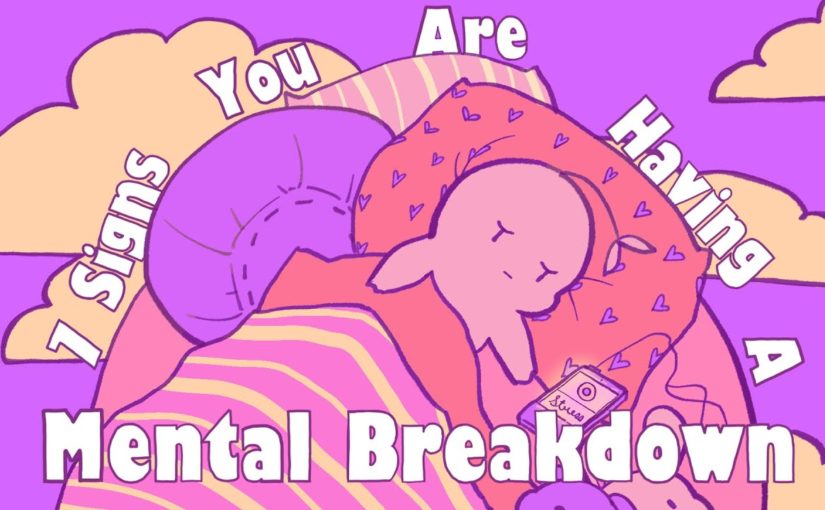
 Because of a sudden loss of motivation, If you find yourself having sudden unhealthy lifestyle changes, You might want to check on your mental well being Five paranoia. Are you constantly worried that people are going to hurt you? Paranoia is a thought process that causes you to have irrational suspicion or mistrust of others, As paranoia is also known for having constant anxiety, and related beliefs. Developing symptoms of paranoia may indicate that you are under severe stress, which can lead to a mental breakdown. Six slowing down of speech Have you responded with I don’t know, or I just don’t feel right When asked about your feelings? One of the earliest signs of a mental breakdown is changes in speech patterns Which can come in the form of hesitation or the slowness of speech. This could be due to the emergence of intrusive thoughts or strong feelings. You may find it difficult to express seven panic attacks. Mental breakdowns are periods of intense mental distress associated with anxiety and depression. Experiencing panic attacks may serve as a critical warning or precursor to having a mental breakdown. Do you relate to any of these signs? Let us know in the comments below Remember you, ‘re, not alone, and if you can relate to this, the video doesn’t afraid to reach out to a professional or talk to someone. You trust if If you find this video helpful be sure to like and share this video With those who might benefit from it subscribe to psych to go for more psychology videos The references, and studies used in this video. Are added in the description below Thanks for watching and we’ll see you in the next video.
Because of a sudden loss of motivation, If you find yourself having sudden unhealthy lifestyle changes, You might want to check on your mental well being Five paranoia. Are you constantly worried that people are going to hurt you? Paranoia is a thought process that causes you to have irrational suspicion or mistrust of others, As paranoia is also known for having constant anxiety, and related beliefs. Developing symptoms of paranoia may indicate that you are under severe stress, which can lead to a mental breakdown. Six slowing down of speech Have you responded with I don’t know, or I just don’t feel right When asked about your feelings? One of the earliest signs of a mental breakdown is changes in speech patterns Which can come in the form of hesitation or the slowness of speech. This could be due to the emergence of intrusive thoughts or strong feelings. You may find it difficult to express seven panic attacks. Mental breakdowns are periods of intense mental distress associated with anxiety and depression. Experiencing panic attacks may serve as a critical warning or precursor to having a mental breakdown. Do you relate to any of these signs? Let us know in the comments below Remember you, ‘re, not alone, and if you can relate to this, the video doesn’t afraid to reach out to a professional or talk to someone. You trust if If you find this video helpful be sure to like and share this video With those who might benefit from it subscribe to psych to go for more psychology videos The references, and studies used in this video. Are added in the description below Thanks for watching and we’ll see you in the next video.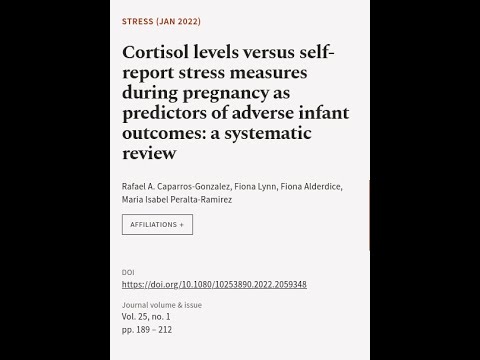
 Methodological limitations need to be addressed in future studies to better understand the relationship between cortisol and self-reported stress and how they are related to adverse infant outcomes. This article was authored by Rafael A. Caparros-Gonzalez, Fiona Lynn, Fiona Alderdice, and others.
Methodological limitations need to be addressed in future studies to better understand the relationship between cortisol and self-reported stress and how they are related to adverse infant outcomes. This article was authored by Rafael A. Caparros-Gonzalez, Fiona Lynn, Fiona Alderdice, and others.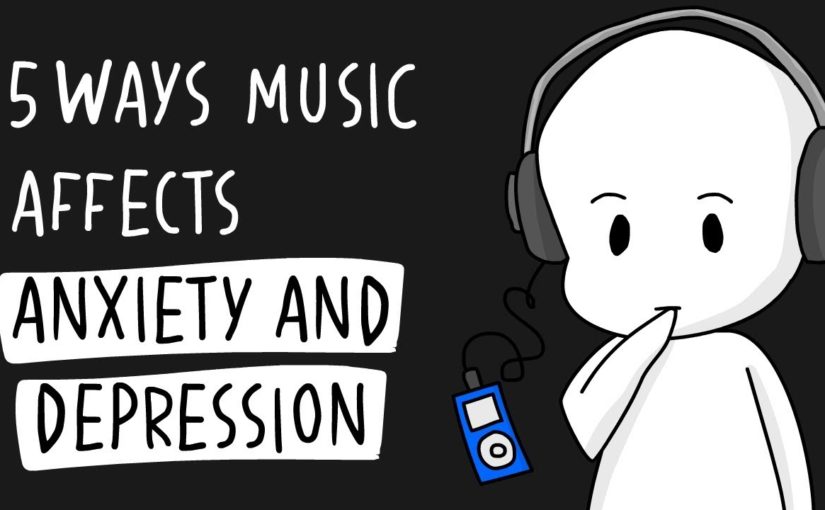
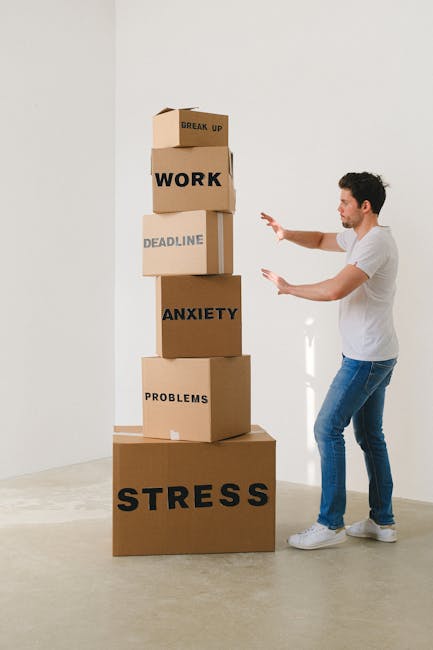 It might also be easier to talk about feelings through lyrics and songs than in other ways. Also reading lyrics. That means a lot to you can help. You feel better if you analyze, why those lyrics mean a lot to you, so we’ve seen how music can affect anxiety, but does it also have an effect on depression? Listening to music can change your mood, so it’s, probably not surprising. It can influence people with depression, Jun, Cellini states that music helps you to express emotions and can help encourage you to let go of suppressed ones. Positive upbeat, music can help lift your mood while slow and sad music might increase your depression. Also listening to music associated with bad memories may make your symptoms worse. This depends on the individual, of course. Sometimes listening to sad lyrics can help an individual feel better, as they may feel less alone. Like with anxiety writing, music can also affect depression. Writing down your feelings can be very helpful in fighting depression. So writing poems or lyrics about your feelings can help reduce depressive symptoms. Writing out the feelings can be a form of release and has been known to prevent suicide and self-harm. We hope you enjoyed this video. If you did please remember to like and share this video and subscribe to our channel for more from our magazine, you can buy them from Psyche to Godot shop. All pledges to our Patreon at
It might also be easier to talk about feelings through lyrics and songs than in other ways. Also reading lyrics. That means a lot to you can help. You feel better if you analyze, why those lyrics mean a lot to you, so we’ve seen how music can affect anxiety, but does it also have an effect on depression? Listening to music can change your mood, so it’s, probably not surprising. It can influence people with depression, Jun, Cellini states that music helps you to express emotions and can help encourage you to let go of suppressed ones. Positive upbeat, music can help lift your mood while slow and sad music might increase your depression. Also listening to music associated with bad memories may make your symptoms worse. This depends on the individual, of course. Sometimes listening to sad lyrics can help an individual feel better, as they may feel less alone. Like with anxiety writing, music can also affect depression. Writing down your feelings can be very helpful in fighting depression. So writing poems or lyrics about your feelings can help reduce depressive symptoms. Writing out the feelings can be a form of release and has been known to prevent suicide and self-harm. We hope you enjoyed this video. If you did please remember to like and share this video and subscribe to our channel for more from our magazine, you can buy them from Psyche to Godot shop. All pledges to our Patreon at 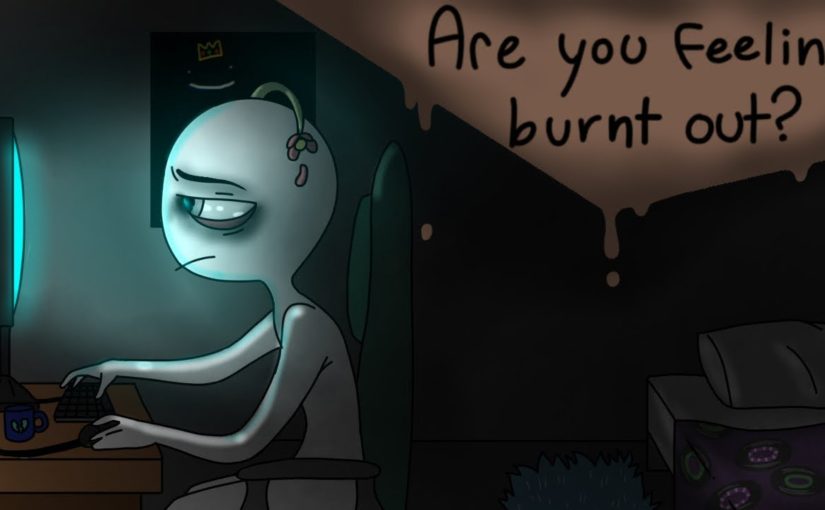
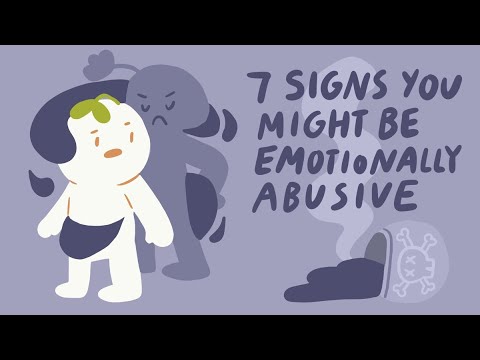
 Number six, you use your emotions to get people to do what you want. Have you intentionally
made someone feel guilty just to get your way? Expressing your emotions can be great for your mental health. Appropriate self-expression facilitates open communication and prevents many resentments. However, unleashing your
emotions becomes destructive when you use it to
manipulate another person. This may include impulsive
shouting or screaming, using threats or ultimatums, blaming them for fights you started, or using information they’ve told you in confidence against them to maintain control and power. Number seven, you use silence as a weapon. Are you the type who deals with conflict by shutting down and running in the other direction? Have you ever used the
silent treatment on others to get what you want? Emotional withholding, a form of emotional abuse that involves using affection,
validation, love, and praise, against someone is a
form of emotional abuse that includes what you might know as the silent treatment. Although it’s normal for any relationship to go through periods of silence, it may become abusive
when you start to use it as a way to punish,
control, or manipulate. Withholding affection or positive emotion through silent treatment is a toxic way to gain the upper hand in any relationship. This also includes talking to everyone about the issue, except the other person involved or wanting the other person to feel bad or guilty. Do you relate to any of
the signs mentioned here? If so, what do you plan to do next? Tell us in the comments below. If you find this video insightful, please like and share it with others who may benefit from it. Don’t forget to subscribe to Psych2Go and hit the notification bell icon for more psychology content. All the references used are also added in the
description box below. Thank you for watching and we’ll see you in our next video..
Number six, you use your emotions to get people to do what you want. Have you intentionally
made someone feel guilty just to get your way? Expressing your emotions can be great for your mental health. Appropriate self-expression facilitates open communication and prevents many resentments. However, unleashing your
emotions becomes destructive when you use it to
manipulate another person. This may include impulsive
shouting or screaming, using threats or ultimatums, blaming them for fights you started, or using information they’ve told you in confidence against them to maintain control and power. Number seven, you use silence as a weapon. Are you the type who deals with conflict by shutting down and running in the other direction? Have you ever used the
silent treatment on others to get what you want? Emotional withholding, a form of emotional abuse that involves using affection,
validation, love, and praise, against someone is a
form of emotional abuse that includes what you might know as the silent treatment. Although it’s normal for any relationship to go through periods of silence, it may become abusive
when you start to use it as a way to punish,
control, or manipulate. Withholding affection or positive emotion through silent treatment is a toxic way to gain the upper hand in any relationship. This also includes talking to everyone about the issue, except the other person involved or wanting the other person to feel bad or guilty. Do you relate to any of
the signs mentioned here? If so, what do you plan to do next? Tell us in the comments below. If you find this video insightful, please like and share it with others who may benefit from it. Don’t forget to subscribe to Psych2Go and hit the notification bell icon for more psychology content. All the references used are also added in the
description box below. Thank you for watching and we’ll see you in our next video..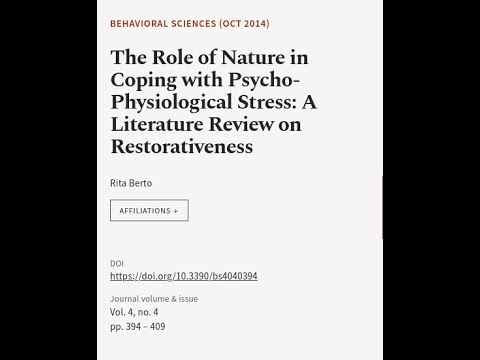

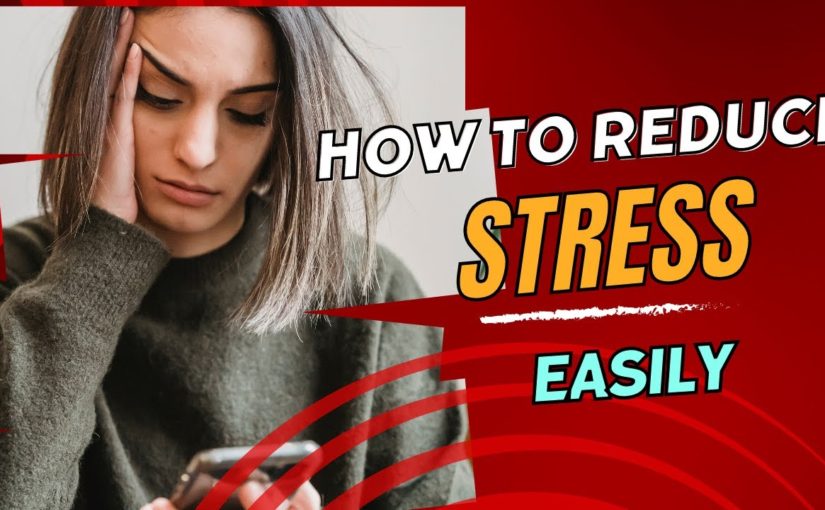
 Try yoga yoga’s physiological effects may explain why those who practice it appear less stressed if you’ve ever noticed this yoga relies on breathing to synchronize the body and mind your body may start to feel more at ease as a result many of the effects of yoga seem to be centered on lowering cortisol and blood pressure which can also lower the effect stress has on the body 5. eat a balanced diet is another important factor in Stress Management every area of your health including your mental health is impacted by your diet Healthy nutrition is important according to Vagopian you will feel worse if you consume a lot of fast food or food that has a lot of processed flour or sugar if you eat fewer meals and drinks that have undergone extensive processing and more Whole Foods like fruits vegetable legumes fish nuts and seeds your body will be well fed consequently you can become more resistant to stress as a result 6. Connect with loved ones the social support of friends and family can help you get through tough times and manage stress if you are stressed out talk to your friends and relatives according to study people who receive less social support exhibit greater overt signs of stress your social support system’s capacity affects your overall Mental Health if you’re feeling lonely and don’t have friends or family to turn to social support groups could be helpful consider getting involved with a club a sports team or a cause that is important to you by volunteering seven spend time in nature more time spent outside could help lower stress Studies have shown that being in nature and spending time in green areas like parks and forests are excellent strategies to manage stress spending as little as 10 minutes in a natural environment May assist enhanced psychological and physiological markers of mental well-being such as perceived stress and happiness although hiking and camping are excellent possibilities some people don’t like them or don’t have access to them even if you live in an urban area you can look for green areas like local parks arboretums and botanical gardens even if you reside in a city we have discussed seven tips to reduce your stress follow these and provide your feedback in the comments section do not forget to subscribe to the channel for more upcoming videos
Try yoga yoga’s physiological effects may explain why those who practice it appear less stressed if you’ve ever noticed this yoga relies on breathing to synchronize the body and mind your body may start to feel more at ease as a result many of the effects of yoga seem to be centered on lowering cortisol and blood pressure which can also lower the effect stress has on the body 5. eat a balanced diet is another important factor in Stress Management every area of your health including your mental health is impacted by your diet Healthy nutrition is important according to Vagopian you will feel worse if you consume a lot of fast food or food that has a lot of processed flour or sugar if you eat fewer meals and drinks that have undergone extensive processing and more Whole Foods like fruits vegetable legumes fish nuts and seeds your body will be well fed consequently you can become more resistant to stress as a result 6. Connect with loved ones the social support of friends and family can help you get through tough times and manage stress if you are stressed out talk to your friends and relatives according to study people who receive less social support exhibit greater overt signs of stress your social support system’s capacity affects your overall Mental Health if you’re feeling lonely and don’t have friends or family to turn to social support groups could be helpful consider getting involved with a club a sports team or a cause that is important to you by volunteering seven spend time in nature more time spent outside could help lower stress Studies have shown that being in nature and spending time in green areas like parks and forests are excellent strategies to manage stress spending as little as 10 minutes in a natural environment May assist enhanced psychological and physiological markers of mental well-being such as perceived stress and happiness although hiking and camping are excellent possibilities some people don’t like them or don’t have access to them even if you live in an urban area you can look for green areas like local parks arboretums and botanical gardens even if you reside in a city we have discussed seven tips to reduce your stress follow these and provide your feedback in the comments section do not forget to subscribe to the channel for more upcoming videos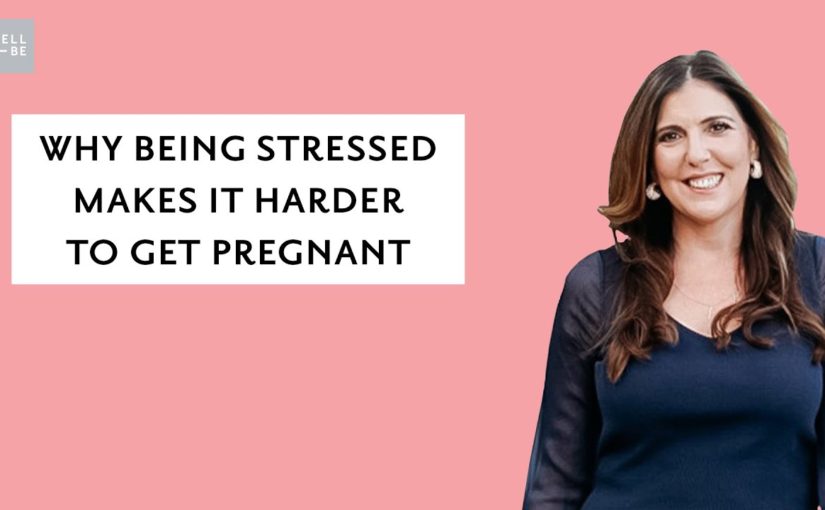
 Cortisol is made from progesterone, downstream from progesterone. Hence, when
we have to make cortisol, progesterone goes down. With that all the other hormones that are
downstream from there including estrogen DHEA and testosterone are reproductive hormones or
hormones of sexual desire or hormones of fertility or hormones, you know, of pregnancy. So all of those get depleted to sacrifice to make this life-saving hormone cortisol. But when cortisol is going on for
too long you get this significant depletion and in my case it becomes infertility. So I always say and
teach this and I’ve taught residents and other physicians worldwide but the
eyes don’t see what the mind doesn’t know.
Cortisol is made from progesterone, downstream from progesterone. Hence, when
we have to make cortisol, progesterone goes down. With that all the other hormones that are
downstream from there including estrogen DHEA and testosterone are reproductive hormones or
hormones of sexual desire or hormones of fertility or hormones, you know, of pregnancy. So all of those get depleted to sacrifice to make this life-saving hormone cortisol. But when cortisol is going on for
too long you get this significant depletion and in my case it becomes infertility. So I always say and
teach this and I’ve taught residents and other physicians worldwide but the
eyes don’t see what the mind doesn’t know.